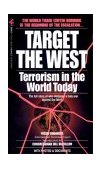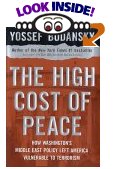|
| Home | About Kashmir Herald | |
Volume 4, No. 6 - December 2004 - January 2005 |
|
| Featured Article |
|
|
|
Has India Given Up Kashmir? KAMAL HAK I am a displaced Kashmiri Pandit. I am in great anguish. My agony is not only due to my inability to continue being part of the dust of my roots but also because of sadly suspecting my beloved Kashmir may be ultimately heading for dismemberment from this country. People might find my fears cynical but I have seen the sharp erosion of Indian nationalism in Kashmir like no body else can ever hope to see it. Tragically, I have helplessly watched how the national opinion is being build to accept the eventuality. From the displaced Kashmiri Pandit’s view, the greatest Indian tragedy involving Kashmir has been the astounding naivety displayed by all sections of Indian society including the successive governments and the media about the ground realities there. Today, common Indian people’s thinking on Kashmir has been conditioned by the eager electronic media programmers, who have made a virtue of spreading myths and distortions about Kashmir and Kashmiri people. I am pained to watch these armchair critics and self appointed judges prostituting the realities about Kashmir only to suit their point of view or score some easy points over others. That these people have been proudly walking away with, what in any other country, would amount to sacrilege or anti-nationalism reflects the decay, which has already set in our society. Sadly, these people have been responsible for making heroes out of minions. Thanks to these people, the Kashmiri leaders, who command their authority not beyond the boundary of their four walls, have developed the audacity of being callous even towards the reconciliatory advances made by the prime minister. A few days back, while undergoing the agony of watching ignorant participants espouse their solutions to the Kashmir problem on a T.V show, a question from some one in the audience caught my attention. “ Why shouldn’t India allow the people of India to decide whether they want to remain with this country or merge with Pakistan?” The person asking this question was honest enough to admit his total ignorance about the politics in Kashmir. Shockingly, the programme anchor, who happens to be a very respected media figure, instead of dismissing the question with contempt, actually agreed with it and expressed the need for exploring the possibility of Plebiscite as one of the options for finding peace in the valley. The thunderous applause from the audience made my heart to miss a beat as I reckoned my community, now living as refugees in their own country, may be now yet another step closer to losing their ancestral homeland forever. I am a no great student of history or politics, but the circumstances have forced me to appreciate some understanding of the both. I find India has always been apologetic about Kashmir. Its oft-repeated stance, “Kashmir is our indispensable part( atoot ang ),” is a mere rhetoric addressed to some political constituency. The fact is India has never displayed any wherewithal to uphold its conviction on Kashmir. That more than one third of Kashmir lies under illegal occupation of Pakistan, who have even gifted a portion of that land to China, has never been a subject of any political or media debate in India. The process of undermining the Indian nationalism in Kashmir started immediately after the independence of India with a great statesman like Jawahar Lal Nehru even faltering in offering to hold plebiscite in Kashmir. Latter, Indira Gandhi resurrected Sheikh Abdullah from the ignominy of seclusion through Beg- Parthasarthy accord and sowed the seeds of the most violent movement in the contemporary history of Kashmir. I am sure; Indira Gandhi would not have been ignorant about the role of both the Sheikh as well as Beg in the Al- Fatah movement of sixties. That she still went ahead with negotiating a transfer of power with the Sheikh is some thing, which needs to be understood more deeply. Analysts have also miserably failed to take notice of the implications of replacing a mainstream nationalistic government of Mir Qasim by that of Sheikh Abdullah, who left no stone unturned in arousing the sentiments of Islamic nationalism amongst the local populace. They have also failed to appreciate the misery of Pandits, who while in Kashmir felt like pigeons in cage and now outside are like shelter less orphans. My community could have ensured the election of their representative to the legislature by adopting strategic voting in at least couple of constituencies. They never did so despite the regular virulent campaigning by the Sheikh extolling the majority Muslims to vote for his party in the name of Islam. And when Sheikh, in his autobiography, termed the Pandits as fifth columnists working as Indian agents, India rewarded him by a Sahitya Academy Award, thereby, clearly establishing that this country recognizes and respects the anti-India sentiments of Kashmiris. For Kashmiri Pandits, it was a yet another pointer towards what the country thinks about Kashmir. I also wonder, despite all that Vajpayee is supposed to have achieved through his Lahore bus diplomacy or loss at Agra, whether he ever had any thinking on Kashmir. Some of my community members went to personally greet him just before his becoming the Prime Minister for the first term. He shocked them by saying, “Something would have to be thought about you.” Many years latter, just before President Musharraf’s visit, he again surprised a Pandit delegation by admitting he wasn’t sure about the summit’s implications on Kashmir. Vajpayee was, perhaps, reflecting India’s insensitivity about continuity of Kashmir as an important part of the country. That Kashmir continues to be recognized as a compulsion by the present government is clearly demonstrated by its response to the Musharraf’s latest plan for finding solution to the problem. It took Manmohan Singh a considerable number of days to reject the Musharraf plan in a public meeting in Srinagar, though his Minister for External Affairs continues to take a contradictory stand on the issue. On one hand, Manmohan Singh sees the economic largesse’s as the instruments for bringing around a lasting peace process in Kashmir and at the same time he clearly indicates to my community that the place is out of bounds for you. His promise of an additional room to the displaced Kashmiri Pandits living under miserable conditions in one-room tenements in various camps in Jammu may have been an attempt towards addressing their social problems, but its political message was stark and clear. Forget Kashmir. Manmohan Singh, perhaps represents the continuity of mind set of a former prime minister who once told a delegation of Kashmiri Pandits that such a small community of just 3 – 4 lakh people should not mind if they are sacrificed for a larger national interest. I am sure none of the Kashmiri Pandits would run away from the moment of reckoning when his blood is required in national interest to save Kashmir. Kashmiri Pandits have institutionalized the act of sacrifice and would do so again. But, the country needs to define clearly what constitutes the national interest. Does national interest mean creating a halo around the people determined to wean away Kashmir from the national mainstream because of their adherence to one particular faith? Or, does national interest mean allowing the only symbols of Indian nationalism in Kashmir to languish in total neglect out side their natural habitat of centuries? Kashmiri Pandits are prepared to offer any sacrifices for Kashmir so long as that helps to maintain the continuity of Indian nationhood there. The Pandits can never reconcile to the idea of anybody expecting them to forego their claim on their ancestral homeland for the sake of so-called larger national interests. Today, Kashmiri Pandits are confronting a great dilemma. On one side their assertion for a union territory in Kashmir, with a free flow of Indian constitution, where all those Kashmiris who have faith in Indian constitution and nation could live is out rightly rejected as communal and divisionary and yet on the other hand the country seems to be happily agreeing to yield to the fundamentalist demands of the separatists, which can shake the basic foundations of Indian nationhood. The national thinking that seems to be emerging on Kashmir forces me, and my fellow Kashmiri Pandits, to see the clear writing on the wall. Good riddance. Kashmiri Pandits, overwhelmingly, believe India need not succumb to any extraneous pressures while trying to find out solution to this vexing problem. A bold and fresh thinking is required to formulate our course of action. A geopolitical reorganization of the state along the socio-linguistic divisions would not only isolate a large part of the state from the current turmoil but would also silence those critics who till now have been taking a myopic view of such a proposal. |
 |
 |
 |
|
|
Archives
| Privacy Policy |
Copyrights
|
Contact
Us | |
||